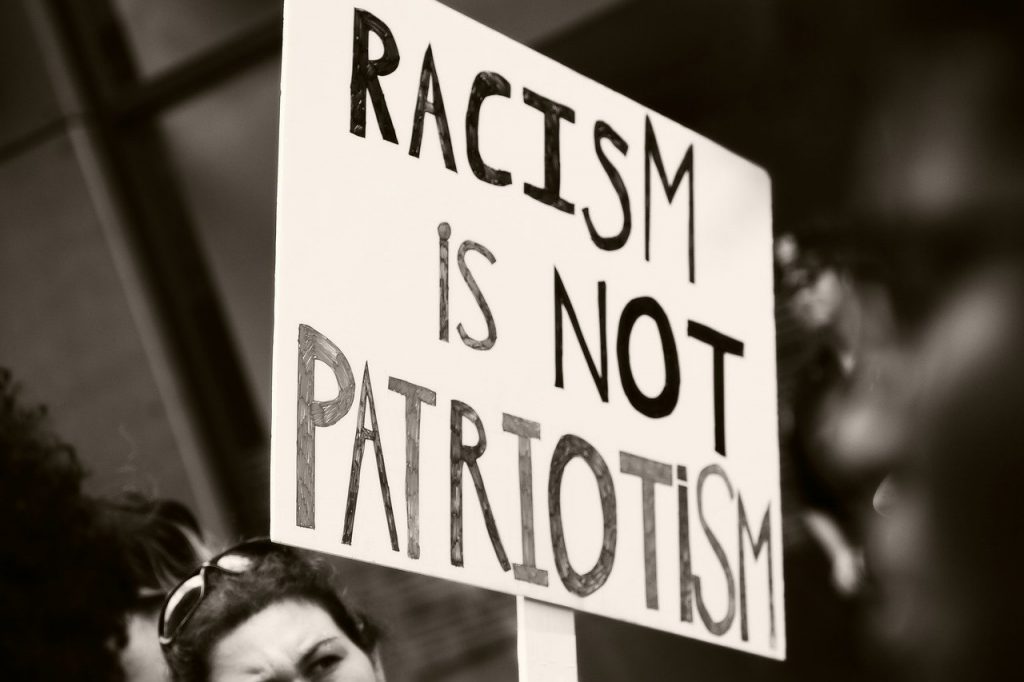Racist abuse targeting black England footballers has fuelled calls for stronger action to eradicate racism and hate online.
Marcus Rashford, Jadon Sancho and Bukayo Saka became victims of racial abuse following their missed penalties in the Euro 2020 final.

The government promise its Online Safety Bill will do more to force action from social media companies. But questions arise on whether we can do more elsewhere as well.
Criminal prosecutions
Legislation already exists in the UK for use to prosecute online abuse. In England and Wales it is covered by two main communication laws, which date from 1988 and 2003.
The Law Commission is reviewing the current laws on behalf of the government. They say they are outdated and do not suit the modern nature of abuse on the internet. The route for prosecution presents “real challenges” as laws were not designed to apply to situations online.
Another complication is the fact that a lot of the abuse received comes from abroad, making things even more difficult. Prosecuting abusers outside the UK poses legal problems, and can make the process longer and harder to gather evidence.
The police and prosecutors only have limited resources. This makes it impossible for them to deal with the amount of abuse through the justice system.
Banning fans from games
More than one million people have now signed an online petition since Sunday’s game. They call for tougher rules on banning abusers from attending matches.
Labour’s Lord Triesman, former chairman of the Football Association (FA), calls for a “one strike and they’re out” approach. He hopes it will deter people against posting abusive content on the internet.
Courts can issue three to ten year bans to fans preventing them attending games in the UK. This includes for offences of drunken and violent behaviour at matches or near the grounds. Authorities can also make UK fans hand over their passports to police during games abroad. Bans can also be enforced for racist chanting, but current laws set more than 20 years ago do not cover online abuse.
However, some clubs have their own systems for identifying and dealing with online abuse. Fans found guilty of online racism receive a ban from their grounds.
‘Internet Asbos’
Another suggested idea is to hand out court-ordered behaviour orders.
A range of Criminal Behaviour Orders replaced the previous Anti-Social Behaviour Orders (Asbos). There is potential to use them to restrict the behaviour of individuals.
Prosecutors can widen their guidance to promote greater use of restrictions on internet use for abusers.
Prevention orders that restrict sexual offenders’ use of the internet could extend for hate crime offences, including racism.
Removing abusive posts
Social media platforms are responsible for removing content, and the burden is on them to do more in this area.
Facebook, who also own Instagram, say it “quickly removed comments” aimed at the football players on its platforms.
Twitter say that after reviews from human moderators and automated technology, they took down over 1,000 tweets directed towards England players in 24 hours. In addition, they permanently suspended a “number of accounts”.
Up until now, social media firms are mainly self-regulating. But the government argues its Online Safety Bill will give ministers and regulators greater powers over companies. Broadcasting regulator Ofcom will also have the power to issue fines of up to £18m or 10% of global turnover, whichever is highest, to businesses failing to comply with the new rules. They will also have the ability to block access to sites in the UK.
It has taken a long time for the government’s Online Safety Bill to come to fruition, and is still undergoing scrutiny. The bill’s journey through Parliament to become law is likely to encounter complications from concerns about it harming freedom of speech. some also criticise the bill for not going far enough to identify and punish anonymous abusers.
Suggestions for people having to provide ID before opening an online account are rejected by the government. They argue it would “disproportionately impact” users like young people exploring sexual identity, and victims of abuse who rely on anonymity for protection. It is up to the companies to meet their duty of care by stopping “repeat offenders” from opening new accounts.
Thank you for reading Racism: What more can we do to stop racial abuse online?

Looking for a storage solution for your garden furniture, tools and belongings? Look no further – Garden Sheds at affordable prices.